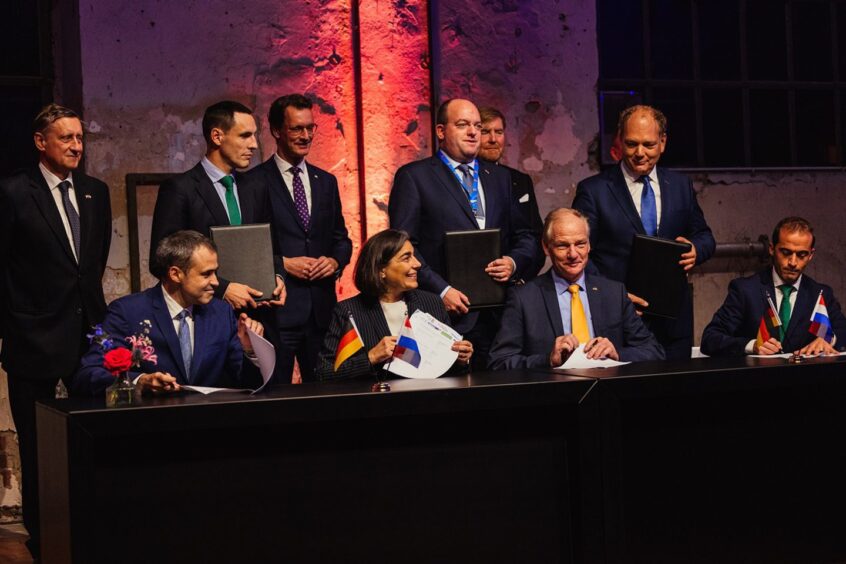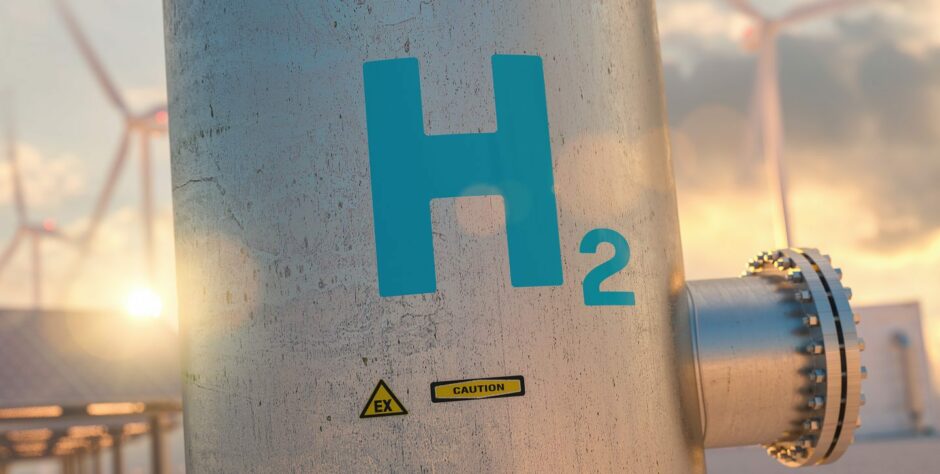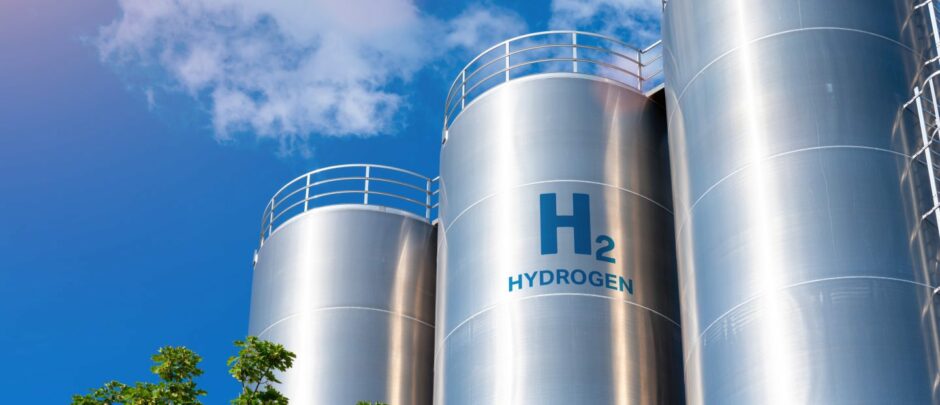
A trio of Spanish, German and Dutch port authorities have signed an agreement to explore an intra-European corridor for renewable hydrogen.
The memorandum of understanding (MoU) brings together the Port of Bilbao, Port of Amsterdam and Duisport as well as the Energy Agency of the Basque Government, Petronor, Evos Amsterdam and Zenith Energy Terminals.
In a statement, Port of Bilbao said the MoU follows the ambitions of the European Union to establish intra-European hydrogen corridors .
The REPowerEU plan, set out in 2022, set the target of producing 10 million tonnes per year of low-carbon hydrogen, with imports of a similar volume, but the sector is facing numerous cost challenges across Europe.
Basque produced renewable hydrogen
The Spanish-Dutch-German MoU builds on an agreement reached earlier this year between the ports in Bilbao and Amsterdam.
It aimed to initiate a viable corridor allowing Basque produced renewable hydrogen and hydrogen derivatives to be exported to the Port of Amsterdam for local offtake.
The addition of Duisport, which operates the port facility in Duisburg, opens up the possibility to supply Basque hydrogen through Amsterdam to the large industrial offtakers located in the Rhine-Ruhr region.
Under the agreement, the Port of Bilbao said the parties will focus on the production of renewable hydrogen by Petronor in the Basque Country and the identification of offtake potential and demand centres in Duisburg and its surrounding industrial regions.
Port of Bilbao director of operations, commercial and logistics Andima Ormaetxe Bengoa said the Bilbao region provides a strong base for collaboration.
“Port of Bilbao is one of the four ports ranked as first level by Spanish Ports National Institution, leading the environmental policies in Spain,” Mr Ormaetxe said.
“Port of Bilbao is also a hub for short sea shipping, facilitating around 30% of trade between Spain and Europe.
“It is our aim to become carbon neutral by 2050 and therefore green corridors between Bilbao, the Netherlands and Germany are of importance to help decarbonise, not only the Basque Country Industry, but also other industrial regions within Europe.”
Duisport aims to be hydrogen hub
Duisport chief executive officer Markus Bangen said Europe’s largest inland port is aiming to become a hydrogen hub.
“By expanding this trusting cooperation, we are sending an important signal for cross-border collaboration: only by working together we can master global challenges such as the energy transition and quickly develop a Europe-wide hydrogen network,” Mr Bangen said.
“The aim is to work at full speed to make the transport chains between the western ports noticeably more resilient and to optimize the infrastructure.
“In this way, the Port of Duisburg is not only further expanding its function as a central logistics hub for Europe, but is also strengthening industry in the Rhine-Ruhr region and in NRW (North Rhine-Westphalia) as a whole.”
Hydrogen supply strategically vital
Port of Amsterdam chief investment officer Dorine Bosman said the firm is committed to contribute to the decarbonisation of industries within Europe.
“The port of Amsterdam has a key role to play as a conduit for hydrogen and e-fuels to the Rhine-Ruhr area,” Ms Bosman said.
“This supply is of vital strategic importance on a European level, which is why our shared focus with Duisport on the resilience of the supply chain is crucial.
“This way, we can bring a corridor for hydrogen and e-fuels between strong production regions like the Basque Country, the UAE, Saudi Arabia and Oman, and the port of Duisburg to life.”
The Port of Amsterdam also signed a joint study agreement with Duisport and a third agreement on the development of a green liquid hydrogen connection with German energy company EnBW, Zenith Energy and GasLog.
The three agreements were signed during the H2 Connecting Event in Duisburg alongside various representatives from Dutch and German government bodies, including the King of the Netherlands Willem-Alexander.
These are the latest in a series of hydrogen agreements signed by Port of Amsterdam, following another deal signed during the Saudi-EU Investment Forum, in Riyadh in October.

 © Shutterstock / r.classen
© Shutterstock / r.classen © Supplied by Shutterstock
© Supplied by Shutterstock